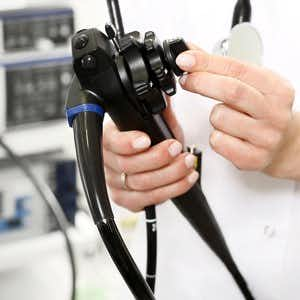
The headlines were brutal and gastroenterologists cringed. One from MEDPAGE TODAY (Oct. 9, 2022) captured the essence of a new study: “If You Invite 455 People to Colonoscopy, You’ll Stop One Case of Cancer — Risk of colorectal cancer reduced with screening in randomized trial, but less than expected.” Not surprisingly, colonoscopies were a hot topic on news shows this week. And many gastroenterologists were somewhat defensive about the study results. What’s the bottom line on the new research?
Colonoscopies In The New England Journal of Medicine:
Research reported in the New England Journal of Medicine (Oct. 9, 2022) suggested that the effectiveness of colonoscopy in preventing colon cancers was surprisingly unimpressive. Among people invited to participate in a colonoscopy, the 10-year death rate from colorectal cancer was 0.28%. That compares to 0.31% among those not invited to undergo screening. In case you are not a statistician, that difference is not statistically significant.
The study was large, including more than 84,000 volunteers in Norway, Poland and Sweden. The researchers invited 28,000 to undergo screening colonoscopies, and nearly 12,000 actually did so. Those not invited to get a colonoscopy received usual care, and the investigators collected health data on everyone for ten years.
Colonoscopies and the Number Needed to Treat:
Researchers have created a metric called the number needed to treat or NNT. It describes how many people would have to receive a particular treatment (or intervention) for one person to benefit. Here is the official NNT explanation:
“The NNT offers a measurement of the impact of a medicine or therapy by estimating the number of patients that need to be treated in order to have an impact on one person. The concept is statistical, but intuitive, for we know that not everyone is helped by a medicine or intervention — some benefit, some are harmed, and some are unaffected. The NNT tells us how many of each.”
The New England Journal of Medicine article describes the benefit of colonoscopies this way:
“The number needed to invite to undergo screening to prevent one case of colorectal cancer within 10 years was 455.”
Needless to say, that is not terribly impressive. It means that 454 people will get no benefit.
The journal article goes on to add:
“The risk of death from any cause was 11.03% in the invited group and 11.04% in the usual-care group.”
You do not need to be a statistical wizard to realize that there was no statistically significant difference in the death rate between those invited to have colonoscopy and those in the usual care group.
Should You Give Up On Colonoscopies?
Before you give up on colonoscopies, though, there are some caveats. Not everyone who was invited to get a colonoscopy in reality did so. Remember, less than half of those invited followed through with the procedure.
The researchers point out that if you compare only those who actually had a colonoscopy, there was a 30% lower risk of developing colon cancer. The risk of cancer death was reduced by 50%.
Wow! That sounds impressive. And many gastroenterologists were quick to point out these relative risk benefits. But the absolute risk reduction was small. Here is how the researchers describe their data:
“In adjusted analyses to estimate the effect of screening if all the participants who were randomly assigned to screening had actually undergone screening, the risk of colorectal cancer was decreased from 1.22% to 0.84%, and the risk of colorectal cancer–related death was decreased from 0.30% to 0.15%. Our results may serve to quantify the effectiveness of screening colonoscopy for the prevention of colorectal cancer and thus enable decision makers to properly prioritize resources for cancer screening and health care services.”
The authors also make an effort to distinguish between relative risk reduction and absolute risk reduction:
“Although we observed appreciable reductions in relative risks, the absolute risks of the risk of colorectal cancer and even more so of colorectal cancer–related death were lower than those in previous screening trials and lower than what we anticipated when the trial was planned.”
We appreciate this candor among researchers.
So…Are Colonoscopies A Waste of Time and Money?
We do not believe you should give up on colonoscopies. People who have a family history of colon cancer should absolutely have regular colonoscopies starting at a relatively early age. The guidelines suggest that others should start at age 45. Anyone who has had polyps discovered during a colonoscopy should continue to have regular colonoscopies to prevent new ones from turning into something worrisome.
There are other ways to screen for colon cancer. Here is a link to an article on this topic.
What Are the Alternatives to Colonoscopy?
How good are the alternatives to colonoscopy, such as FIT or Cologuard, for detecting colorectal cancer? When should you start?
What Do You Think?
We welcome your perspective on the new data published in the New England Journal of Medicine. We recently discussed new prep strategies with one of the country’s leading gastroenterologists. Many people avoid colonoscopies because they hate drinking a gallon of glop to clean out their colons.
We think you will find this podcast of great interest. Here is a link to the podcast. To listen, just click on the arrow in the green circle under Dr. Nicholas Shaheen’s photo. Or scroll to the bottom of the page and download the mp3 file. Please share this article with friends and family. We suspect that many people were confused by the headlines.

